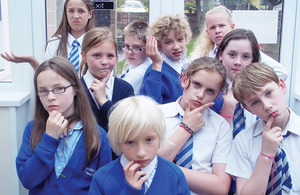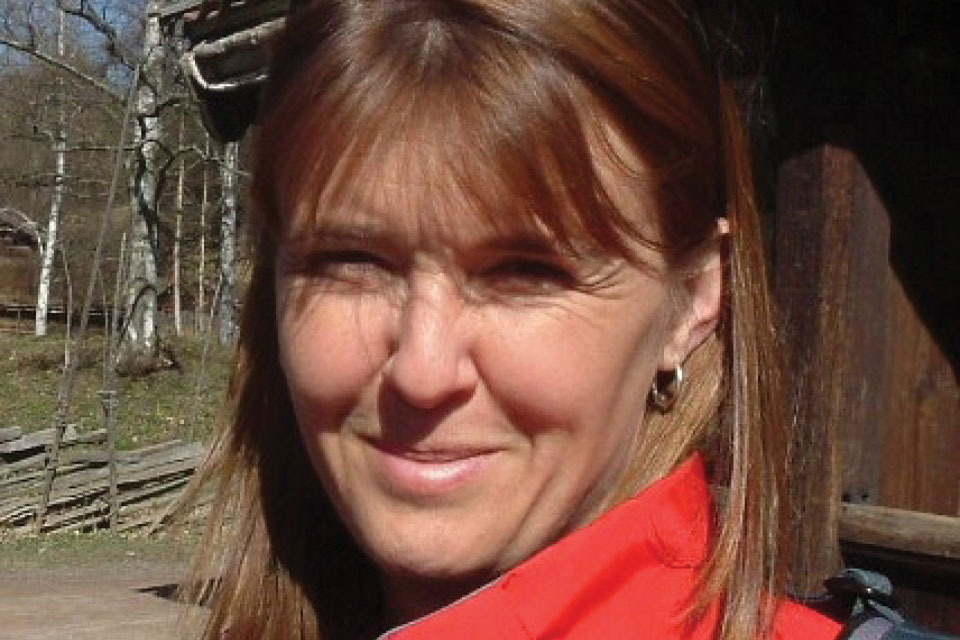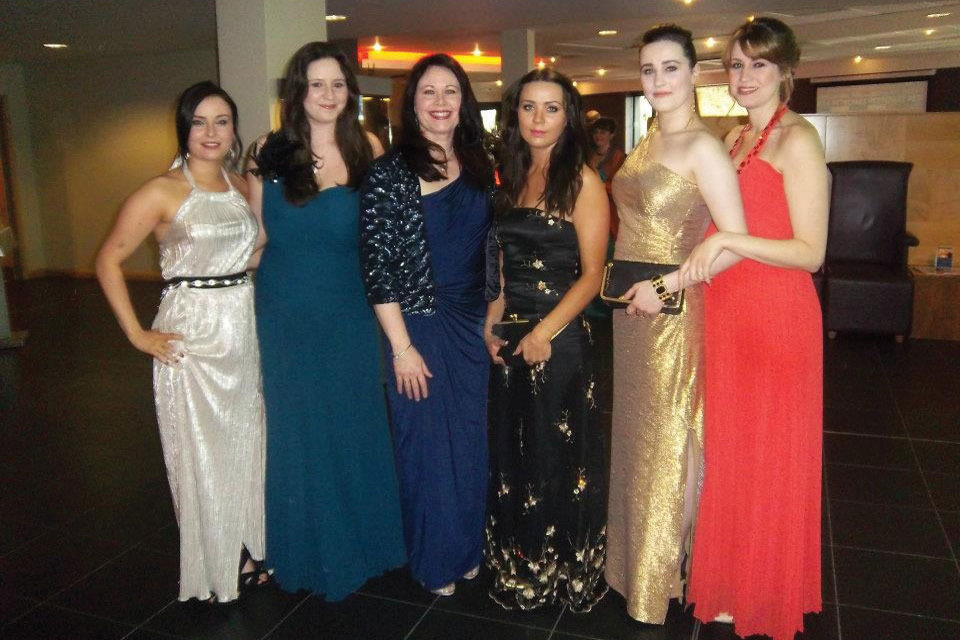How the armed forces covenant can support service families
Case studies about service personnel families who have been assisted by the armed forces covenant.

Children at Eggbuckland Vale Primary
Eggbuckland Vale Primary
Last year Mrs Cording, Head Teacher at Eggbuckland Vale Primary, won funding from the MOD’s State School Support Fund to help the Service children in her school through a community project. The work has grown and grown and the school has just received its second round of funding to develop it.
Service children make up around 25% of our school, and whilst statistically across the UK they achieve more academically than other children, in our school that isn’t the case. So we wanted to think of a way that gave them the pastoral care they need along with helping with their attainment.
So we asked a group of Service children in Year 6 to be in charge of organising a community event. They decided on staging an art gallery and (with some professional help!) got to grips with event planning, taking part in artist workshops, printed postcards to sell and sorting out the tea and coffee stands. All 95 Service children in the school took part on the day, and we got young people in from the secondary school who acted as peer mentors to the younger ones. The event has given them organisational skills and boosted their writing and their creativity. But it’s also given them an identity within the school community, and raised their profile with the other students.
This time round we are bringing in the local HIVEs to work with the vulnerable Service children in the school who struggle because of their parent’s deployment with an eight-week programme building resilience. At the end they will work with professional designers to develop a product like a board game to help other children who have the same problems. We even plan to market the design to generate an income that will be ploughed back into the project so we can continue to run it.
Naphill and Walters Ash School

Mrs Gwynn, headmistress of Naphill school
Naphill and Walters Ash School in Buckinghamshire has a 50% Service child population. Mrs Gwynn, the headmistress, used the Service Pupil Premium money they receive to help Service children struggling to settle in to the school.
At Naphill our main concern for our forces pupils is that we not only meet their academic needs, but can fully support the pupils with the other factors many of them have to contend with (e.g. mobility, parents being posted abroad). We also believe that service families often need extra support as each county/region has different policies and procedures (e.g. secondary transfer, Special Educational Needs).
We decided to use our Service Pupil Premium to ensure that all new arrivals have a proper induction process, which ensures they know things like school rules and expectations and where everything is (including most importantly the toilets!) This process uses a Passport which allows them to tell us about their likes and dislikes, previous schools and identifies the things they are worried about. Right from the start, new pupils get small group or individual support to help them settle. Pupils whose parents are deployed abroad are given time out of class to contact their parents through e-blueys. The children really enjoy this time and many of their messages are lovely and I know are appreciated by those receiving them.
We also have special help for our Nepalese Service children. A Nepalese pupil started in Year 2 having come straight from Nepal. We already employed a dinner lady who was Nepalese, but we used the Pupil Premium to extend her hours at school to support new arrivals. She helped the school to assess that this pupil’s Nepalese was as poor as his English so we could identify his issues were wider than just the language barrier. More widely, she has helped with translations for children and she can also explain processes to parents in their own language.
Kelly Thompson

Kelly Thompson is studying at Derby University using the MOD's Bereaved Scholarship Scheme
Four years ago, Kelly Thompson’s father Gary, RAF senior aircraftsman, died serving in Afghanistan when the vehicle he was travelling in hit an IED. He had told his family he would be doing a desk job there to stop them worrying, and Kelly and her family describe him as a hero. Kelly has just started a degree in educational studies at Derby University using the MOD’s Bereaved Scholarship Scheme (BSS). The scheme is funded by the Department for Education and the Devolved Governments in Scotland, Wales and Northern Ireland. She will graduate in 2015 and she hopes to become a teacher. She lives at home with her sister Jade and her mum Jacqueline.
There are six girls in my family, five sisters and my mum. One of my sisters is studying nursing, one is an account manager, one is a primary school teacher and the eldest is married with two little girls. I started at Derby University doing educational studies this year and I also work part-time at a cinema.
I did go to uni in London back in 2010 for a bit, but it was too soon to leave my family and it was very emotional so I came back. And I wouldn’t have gone back to uni if I hadn’t been able to use the BSS, I’d already spent £8,000 on the first time round. It’s been a massive weight off my shoulders because I can do something I really want to do without being held back, and without worrying about debt.
Dad was always so pro our education, and so is Mum. He would be so happy to know I’m studying at university. He would have been happy whatever I’d done because he was always so supportive, but he really cared about making sure we had the opportunities if we wanted them. And it makes me so proud of myself, for him.
When I graduate I want to be a teacher, and I’d really like to work in a Youth Institute for kids who have had to leave mainstream school because of their behaviour, so I can help people who haven’t had a good start in life. It’s like Dad, he wanted to serve in Afghanistan because he wanted women there to get the same chance of an education as all his girls have.
I’ve had a massive loss in my life, but I’m so lucky really. I want kids who’ve been kicked out of school to know that there are people who don’t give up on them, and I want to help people who haven’t had the same privileges as me.